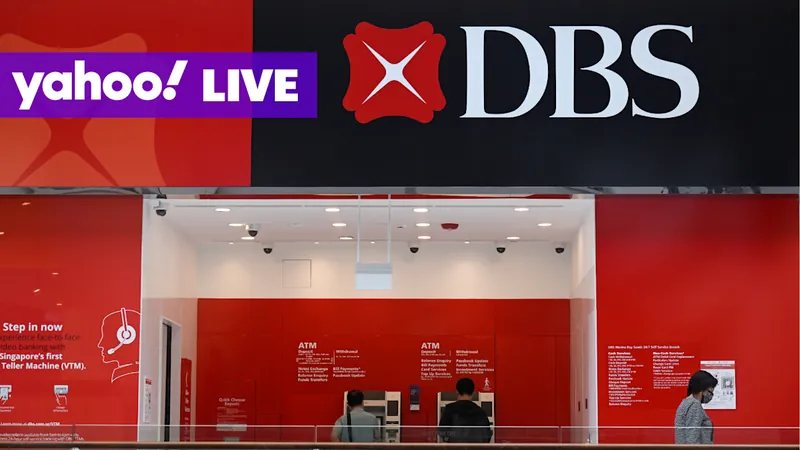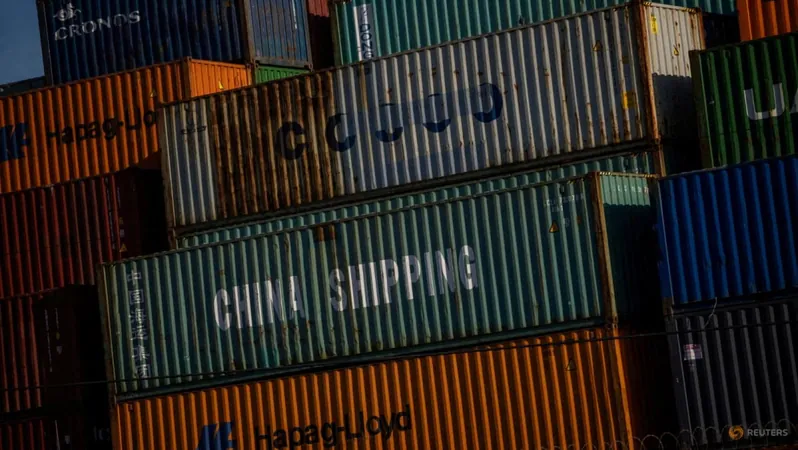
Cybersecurity Crisis: Ransomware Attack Exposes DBS and Bank of China Customer Data; Controversy Erupts Over Calvin Cheng's Gaza Remarks
2025-04-08
Author: Jia
In a troubling development, a ransomware attack on Toppan Next Tech (TNT)—a vendor involved in printing customer statements for DBS Bank and Bank of China (BoC)—has compromised sensitive personal data of thousands of customers in Singapore.
The breach has affected approximately 8,200 DBS customers, revealing their names, addresses, and loan details, while around 3,000 customers from the Bank of China have also been impacted.
Although no sensitive financial information or login credentials were accessed during the breach, the incident highlights the escalating risks posed by ransomware attacks in the digital age.
In response to the cybersecurity crisis, both DBS and BoC have ceased all printing operations with TNT as a precautionary measure.
The banks are currently collaborating with the Cyber Security Agency (CSA) and the Monetary Authority of Singapore (MAS) to monitor all potentially impacted accounts closely and provide timely communication to affected customers.
The CSA has taken the issue seriously, issuing advisories to organizations outlining best practices for safeguarding their systems against similar threats.
The ransomware attack serves as a grim reminder of the necessity for companies to fortify their cybersecurity measures in light of the increasing frequency and sophistication of such attacks worldwide.
Meanwhile, former Nominated Member of Parliament (NMP) Calvin Cheng has sparked a fierce debate in Singapore with his controversial remarks regarding pro-Palestinian activists.
Cheng's inflammatory statement, suggesting that disruptive activists be relocated to Gaza, has faced widespread backlash from religious and political leaders alike.
The Singapore Islamic Scholars and Religious Teachers Association (PERGAS) has openly condemned Cheng’s comments as dehumanizing and deeply troubling, warning that such remarks could undermine the multiracial harmony within Singapore.
Despite the uproar, Cheng has defended his statements, insisting that they were targeted solely at specific activists rather than any community or faith.
He confirmed plans to take legal action against those whom he believes have misinterpreted his words.
Political figures, including Minister for Muslim Affairs Masagos Zulkifli and Law and Home Affairs Minister K Shanmugam, have publicly disagreed with Cheng's views, reinforcing the notion that such rhetoric is damaging to Singapore’s social fabric.
As these developments unfold, Singaporeans are reminded of the delicate balance of opinion in a diverse society, and the need to engage in constructive dialogue while promoting understanding and respect among different communities.
With these two significant events dominating the news cycle, Singapore faces both a cybersecurity challenge and a moral dilemma as it navigates issues of freedom of speech and communal respect in a time of heightened tension.



 Brasil (PT)
Brasil (PT)
 Canada (EN)
Canada (EN)
 Chile (ES)
Chile (ES)
 Česko (CS)
Česko (CS)
 대한민국 (KO)
대한민국 (KO)
 España (ES)
España (ES)
 France (FR)
France (FR)
 Hong Kong (EN)
Hong Kong (EN)
 Italia (IT)
Italia (IT)
 日本 (JA)
日本 (JA)
 Magyarország (HU)
Magyarország (HU)
 Norge (NO)
Norge (NO)
 Polska (PL)
Polska (PL)
 Schweiz (DE)
Schweiz (DE)
 Singapore (EN)
Singapore (EN)
 Sverige (SV)
Sverige (SV)
 Suomi (FI)
Suomi (FI)
 Türkiye (TR)
Türkiye (TR)
 الإمارات العربية المتحدة (AR)
الإمارات العربية المتحدة (AR)